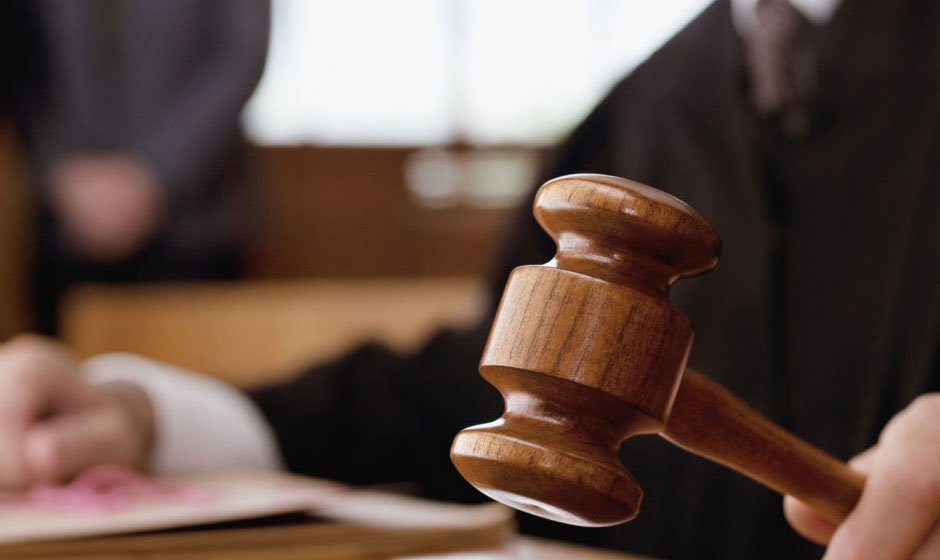What to Expect When Facing Criminal Charges: A Step-by-Step Guide

Navigating the Complex Legal Landscape with Confidence
Facing criminal charges is one of the most stressful and overwhelming experiences anyone can go through. This step-by-step guide aims to demystify the process, providing a clear understanding of what to expect and how to navigate the legal landscape with the help of a criminal law firm in Sydney.
Step 1: The Arrest
Understanding Your Rights and Responsibilities
An arrest marks the beginning of a complex journey through the criminal justice system.
- Remain Silent:Your right to remain silent is crucial to protect yourself from self-incrimination.
- Request an Attorney:Ask for a lawyer immediately and speak with one present.
- Comply with Law Enforcement:Follow the officers’ instructions while protecting your rights.
Step 2: The Initial Appearance
Your First Encounter with the Court
The initial appearance sets the tone for your case, outlining charges and addressing bail.
- Understand the Charges:Get clarity on the specific charges and potential penalties.
- Consider Bail Options:Discuss bail possibilities with your attorney.
Step 3: Hiring a Legal Team
Finding the Right Criminal Law Firm
Choosing legal representation is a critical decision with long-term impacts.
- Consider Expertise:Look for attorneys with criminal law specialization.
- Evaluate Experience:Assess the attorney’s track record with similar cases.
- Discuss Fees and Expectations:Understand the costs and what you can expect from your legal team.
Step 4: Preliminary Hearings and Discovery
Building Your Defense
This stage involves the sharing of information between the prosecution and defense.
- Gather Evidence:Work with your attorney to collect evidence and build a strong defense.
- Understand the Prosecution’s Case:Knowing the evidence against you helps build a counterstrategy.
- Prepare Witnesses:Work with witnesses to ensure they’re ready to testify.
- Engage in Negotiations:Sometimes, early negotiations can lead to case resolution.
Step 5: Plea Bargaining
Negotiating a Resolution
Plea bargains can resolve cases without a trial but require careful consideration.
- Weigh the Pros and Cons:Evaluate if a plea bargain benefits your situation.
- Understand the Long-Term Impact:Know how a guilty plea may affect your future.
Step 6: The Trial
Facing the Court
A trial is a complex, multi-stage process that requires careful preparation.
- Selection of the Jury:Ensuring an unbiased jury is essential.
- Opening Statements:Outlining your defense sets the stage.
- Presenting Evidence and Witnesses:This is the core of the trial, where both sides offer their case.
- Cross-Examination:Challenging the prosecution’s evidence is crucial.
- Closing Arguments:Final statements aim to persuade the jury.
- Jury Deliberation:The jury’s discussion and decision on your case.
Step 7: The Verdict and Sentencing
The Final Judgment
The conclusion of the trial process where the verdict and sentencing are determined.
- Prepare for All Outcomes:Understand potential outcomes and prepare mentally and practically.
- Understand Sentencing Guidelines:If convicted, know what sentences are possible for your charges.
Step 8: Post-Trial Motions and Appeals
Exploring Legal Options After the Verdict
The conclusion of the trial doesn’t necessarily mean the end of the legal process. Depending on the outcome, you and your legal team may decide to pursue post-trial motions or appeals.
- File Post-Trial Motions:These might include requests for a new trial or a motion to alter or amend the judgment.
- Consider an Appeal:If legal errors occurred during the trial, you might appeal the decision to a higher court.
- Work Closely with Your Attorney:Understanding your options and developing a post-trial strategy is essential, and your attorney’s guidance will be crucial during this phase.
Step 9: Navigating Life After the Legal Process
Rebuilding and Moving Forward
Whether the result is acquittal, conviction, or a plea deal, the aftermath of facing criminal charges requires careful navigation. This stage often involves rebuilding aspects of your life that may have been affected.
- Seek Support:Friends, family, therapists, or support groups can provide emotional assistance as you progress.
- Address Employment and Housing:Depending on the outcome, you may need to address changes in employment or housing.
- Consider Expungement or Sealing Records:If applicable, discuss with your lawyer the possibility of expunging or sealing records to minimize long-term impacts.
- Reflect and Learn:Reflect on the experience and consider paths towards personal growth and positive change.
Additional Considerations
Other Factors to Keep in Mind
- Emotional Preparation:The process can be emotionally taxing; support from family, friends, and professionals can help.
- Financial Considerations:Legal defense can be costly; understanding fees upfront avoids surprises.
- Long-Term Impact:A conviction can affect employment, housing, and more.
Conclusion: The Importance of Professional Guidance
Your Legal Partner in a Challenging Time
The criminal legal process is intricate and fraught with potential pitfalls. Understanding each step and having the support and guidance of a skilled criminal law firm is vital. This guide provides a roadmap, but every case is unique, and personal legal advice tailored to your situation is indispensable.
Facing criminal charges is a life-altering experience, but with the right information and professional support, you can navigate this difficult path with greater clarity, confidence, and hope.



